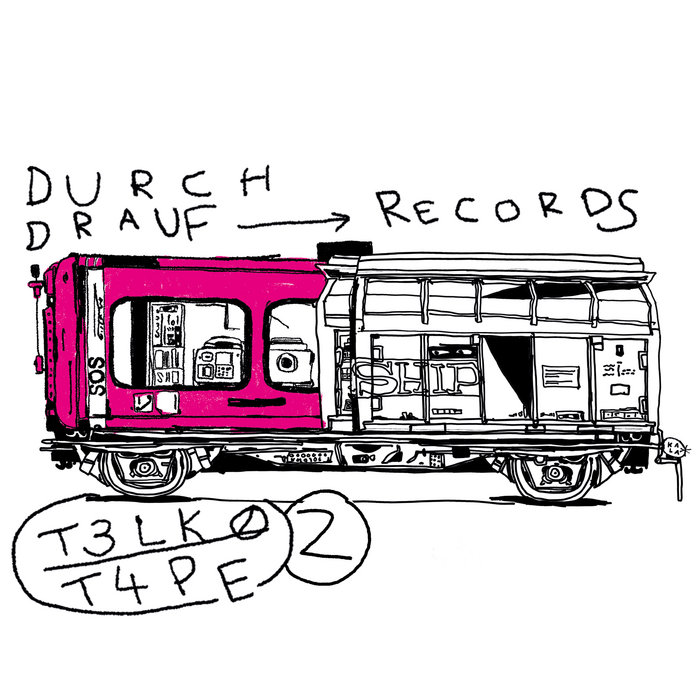
Heftnotiz – Sam Boca, Forty MC, Acyr, DJ Polar
this blog is GROOVY – check out great Soul, Funk, Jazz, Hip Hop, Bass, Breaks , Reggae, House n many more TUNES
Ah, deutsches Hip-Hop! The fusion of beats, rhymes, and a bit of that German swagger. It’s a journey that not only showcases lyrical prowess but also the culture and history behind it. So grab your headphones; we’re diving into the funky world of German hip-hop!
Hip-hop in Germany kicked off in the early 1980s—yes, way back when cassette tapes were still a thing! Influenced by American rap, DJs like DJ Uwe and groups such as Die Fantastischen Vier emerged on the scene. These pioneers laid down some sick beats and spouted clever wordplay that had everyone nodding their heads.
In 1989, Die Fantastischen Vier dropped “Die Da!?,” which became a huge hit. They essentially said to mainstream radio: “Yo! We’ve arrived!” Their catchy hooks combined with playful lyrics helped to break barriers between rap and pop music in Germany. Get this—their humorous take often included references to everyday life (like waiting for public transport) which made them relatable while keeping things groovy.
Fast forward to the late ’90s and early 2000s—this was prime time for deutscher hip-hop! Artists started mixing genres with electronic sounds, punk rock vibes, and even some good old-fashioned Schlager influence—all sprinkled with their unique German flavor.
One name you can’t miss is Sido, who burst onto the scene wearing his iconic mask. Legend has it that he wore it because he wanted people to focus more on his music than on him personally. Sido became super popular but eventually revealed his face after becoming famous—as if he said “Surprise!” But here’s a funny fact: people thought he might be hiding something really serious under there—a secret identity or something juicy!
Another heavyweight was Bushido, known for his gritty lyrics and street style wrapped up in emotional narratives about life in Berlin’s rough neighborhoods. Now here’s where it gets amusing—Bushido once pushed back against critics saying he glorified violence by stating that rapping about your struggles isn’t glorification; it’s just truth-telling… while looking super cool doing so!
As we rolled into the 2010s, newer artists began emerging from diverse backgrounds—mixing traditional styles with fresh influences from around Europe and beyond! Enter artists like Cro, who brought along his panda mask (more masks!). Cro blended hip-hop with pop melodies making hits like “Easy.” His fun style contrasted sharply against some of the earlier grimy aesthetics prevalent in deutschrap.
Not only did Cro manage massive hits without dropping cuss words—which many thought impossible—but through social media platforms like YouTube… He also introduced us to ‘Panda-Swag’. A whole new level indeed!
Then there’s Shindy—he took on an entirely different approach compared to classic rappers focusing more on lifestyle bling-bling talk rather than strictly street narratives. And guess what? Shindy didn’t just carve out himself as an artist; he’s got quite an impressive fashion sense too—with designers whispering sweet nothingness into his ear.
In Germany’s hip hop community there exists what one might call “Rap Battles,” where artists go head-to-head verbally but keep it entertained enough so laughter ensues instead of drama!
Also funnily enough—in 2016 DJ Khaled decided he should feature Snoop Dogg AND Bushido together because hey – why not mix cultures?! Imagine sitting at home jamming away having no idea these three worlds collide over brunch someday?!
Now we’re cruising through today where deutsches Hip-Hop remains vibrant with countless sub-genres evolving every season—from trap-infused bangers spreading across clubs nationwide all thanks largely due its younger generation flipping sampled loops left right center while paying homage via classics within verses themselves!
Artists such as Nura (from SXTN fame), known for her fierce messages regarding empowerment shines bright alongside rising stars illustrating inclusivity woven throughout tracks unveiling unheard stories encouraging listeners everywhere find their voice amidst chaos world bringing authentic self-love back home both lyrically musically too!
And let’s not forget how social media plays its role now; many new talents are simply going viral overnight showcasing remarkable creativity using unconventional platforms ranging TikTok dance trends influencing chart placements proving anyone can be next big star if they dare step outside box sometimes too!
In summary folks? Deutscher Hip-Hop is more than just about beats or rhymes—it shows us how identity resonates deeply within art connecting lives altogether creating space authenticity humor merging pure talent wittiness forging pathways revealing society’s colorful layers along journey itself.
From hilarious masks worn by rappers wishing anonymity fighting stigma around artistry each day plus those laugh-out-loud moments lived through words crafted uniquely telling tales—we see evolution never slow down always sprouting beautifully thriving immensely uplifting all generations moving forward dancing together forevermore embracing today tomorrow harmonizing destinies united beat groove rhythm keep flowing endlessly inside our hearts minds souls alike.
So next time someone drops a beat or spins some bars? Remember you’re listening history unfolding before you added alongside quirkiness madness adorning every note played clearly neon-popping vibes filling air—you know just how vital beats flow beyond borders occluding stereotypes making waves louder longer lasting soulfully expansive… Groovy ain’t dead y’all—it thrives real-time right here amongst us everyday musically carried flowing fast-forward style living moment enjoying ride expressively endlessly discovering gems hidden underneath surface folks embrace proudly literally shaking ground surrounding them unapologetically paving roads anew reaching unseen heights soaring limitless chasing dreams finally arriving happy landing dreamt-of destinations built hard work crazy ambition heart passion mixed effortlessly attitude bringing light joy-playfulness pandemic surviving elements raised high above shadows unfurl shining brighter stronger oh-so-amazingly glorious times ahead indeed!

Heftnotiz – Sam Boca, Forty MC, Acyr, DJ Polar